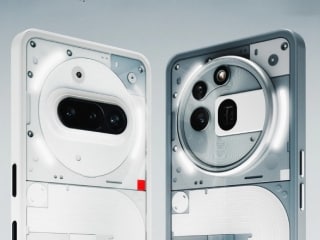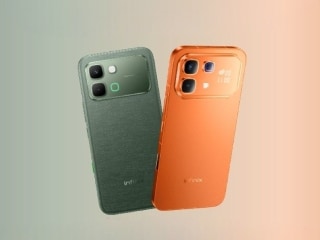- Home
- Others
- Others News
- Microsoft could announce Windows On Devices at Build 2014 conference
Microsoft could announce Windows On Devices at Build 2014 conference
By NDTV Correspondent | Updated: 2 April 2014 15:21 IST

Click Here to Add Gadgets360 As A Trusted Source

Advertisement
Microsoft might be gearing up to launch a version of Windows aimed at enabling devices designed for always-connected appliances, sensors, and wearables as part of the emerging Internet of Things movement. The derivative of the world's most popular operating system would run on "a whole new class of devices", according to a Microsoft website that was briefly live but has now been pulled down.
The website, www.windowsondevices.com, is now unavailable but sources such as WPcentral and Engadget report that it included example content such as a giant toy piano, a coffee cup and various robotic experiments. Windows on Devices could also target hobbyists, educators and inventors who experiment with building their own robots and similar devices.
The platform seems to be geared towards Intel's Galileo development platform, a low-cost, low-power, Arduino-compatible programmable development board based on the recently announced Quark X1000 SoC. The Quark product line is also aimed at enthusiasts and educators, and Intel already sponsors efforts to develop new wearable devices. Intel's Edison platform, which will complement Galileo later this year, provides similar capabilities in an overall package the size of an SD card.
The effort to reach out to and engage this audience could be a sign of Microsoft embracing the Internet of Things, a movement to pervasively embed Internet connectivity into appliances, clothes, furniture and millions of other objects, thereby creating a network of always-on, always-aware devices capable of automation, communication, and autonomously responding to changes in their environment. Such devices require new computing hardware and software optimised small sizes and low power consumption.
Microsoft is also widely expected to launch Windows Phone 8.1 at its annual Build conference, scheduled to begin on April 2.
The website, www.windowsondevices.com, is now unavailable but sources such as WPcentral and Engadget report that it included example content such as a giant toy piano, a coffee cup and various robotic experiments. Windows on Devices could also target hobbyists, educators and inventors who experiment with building their own robots and similar devices.
The platform seems to be geared towards Intel's Galileo development platform, a low-cost, low-power, Arduino-compatible programmable development board based on the recently announced Quark X1000 SoC. The Quark product line is also aimed at enthusiasts and educators, and Intel already sponsors efforts to develop new wearable devices. Intel's Edison platform, which will complement Galileo later this year, provides similar capabilities in an overall package the size of an SD card.
The effort to reach out to and engage this audience could be a sign of Microsoft embracing the Internet of Things, a movement to pervasively embed Internet connectivity into appliances, clothes, furniture and millions of other objects, thereby creating a network of always-on, always-aware devices capable of automation, communication, and autonomously responding to changes in their environment. Such devices require new computing hardware and software optimised small sizes and low power consumption.
Microsoft is also widely expected to launch Windows Phone 8.1 at its annual Build conference, scheduled to begin on April 2.
Comments
Get your daily dose of tech news, reviews, and insights, in under 80 characters on Gadgets 360 Turbo. Connect with fellow tech lovers on our Forum. Follow us on X, Facebook, WhatsApp, Threads and Google News for instant updates. Catch all the action on our YouTube channel.
Related Stories
Popular on Gadgets
- Samsung Galaxy Unpacked 2025
- ChatGPT
- Redmi Note 14 Pro+
- iPhone 16
- Apple Vision Pro
- Oneplus 12
- OnePlus Nord CE 3 Lite 5G
- iPhone 13
- Xiaomi 14 Pro
- Oppo Find N3
- Tecno Spark Go (2023)
- Realme V30
- Best Phones Under 25000
- Samsung Galaxy S24 Series
- Cryptocurrency
- iQoo 12
- Samsung Galaxy S24 Ultra
- Giottus
- Samsung Galaxy Z Flip 5
- Apple 'Scary Fast'
- Housefull 5
- GoPro Hero 12 Black Review
- Invincible Season 2
- JioGlass
- HD Ready TV
- Laptop Under 50000
- Smartwatch Under 10000
- Latest Mobile Phones
- Compare Phones
Latest Gadgets
- OPPO A6v 5G
- OPPO A6i+ 5G
- Realme 16 5G
- Redmi Turbo 5
- Redmi Turbo 5 Max
- Moto G77
- Moto G67
- Realme P4 Power 5G
- HP HyperX Omen 15
- Acer Chromebook 311 (2026)
- Lenovo Idea Tab Plus
- Realme Pad 3
- HMD Watch P1
- HMD Watch X1
- Haier H5E Series
- Acerpure Nitro Z Series 100-inch QLED TV
- Asus ROG Ally
- Nintendo Switch Lite
- Haier 1.6 Ton 5 Star Inverter Split AC (HSU19G-MZAID5BN-INV)
- Haier 1.6 Ton 5 Star Inverter Split AC (HSU19G-MZAIM5BN-INV)
© Copyright Red Pixels Ventures Limited 2026. All rights reserved.

















